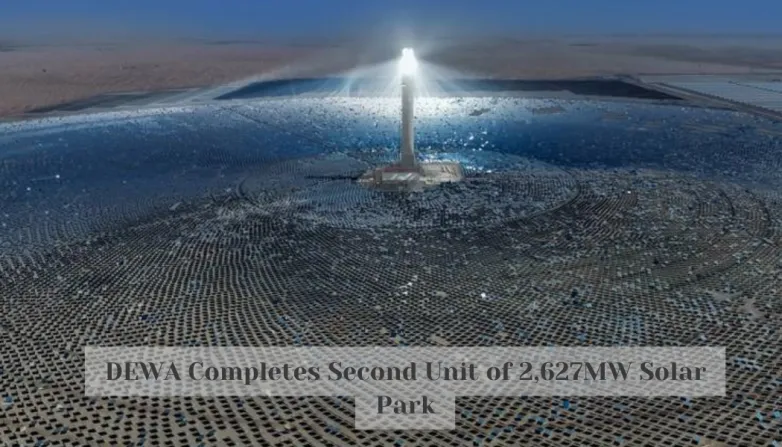DEWA Completes Second Unit of 2,627MW Solar Park
- Discover how DEWA's fourth phase of the Mohammed bin Rashid Al Maktoum Solar Park is providing clean energy to 320,000+ homes and reducing carbon emissions by 1.6 million tonnes with its advanced hybrid solar power technologies.

Dubai Electricity and Water Authority (DEWA) has commissioned the second unit of the parabolic basin complex in the fourth phase of the Mohammed bin Rashid Al Maktoum Solar Park. This phase, using the Independent Power Producer model, is set to provide clean energy for about 320,000 homes and reduce carbon emissions by 1.6 million tonnes per year. The fourth phase of the Solar Park uses three hybrid technologies to produce clean energy. It has 717MW commissioned so far, and the largest thermal storage capacity in the world of 15 hours. It also includes the installation of more than 790,000 photovoltaic solar panels and 70,000 mirrors (heliostats). The 950MW fourth phase is the largest single-site project in the world that combines concentrated solar power and photovoltaic technologies. When fully completed in 2030, the park will have 5,000MW of production capacity and reduce carbon emissions by 6.5 million tonnes annually.
How Does DEWA's 4th Phase of Solar Park Impact Environment?
- The fourth phase of the Solar Park is the largest single-site project in the world to combine concentrated solar power and photovoltaic technologies.
- The installation of 790,000 photovoltaic solar panels and 70,000 mirrors (heliostats) produces clean energy for about 320,000 homes and reduces carbon emissions by 1.6 million tonnes per year.
- When fully completed in 2030, the park will have 5,000MW of production capacity and reduce carbon emissions by 6.5 million tonnes annually.
- The fourth phase of the Solar Park helps reduce air pollution by eliminating the burning of fossil fuels and the release of their harmful emissions into the environment.
- The parabolic basin complex used in the fourth phase of the Solar Park helps reduce water consumption in electricity production as it uses much less water than traditional methods.
- The production of solar energy in this project helps reduce the dependence on conventional sources of energy, such as coal and gas, which further helps in reducing the global warming effects on the environment.
Also read

